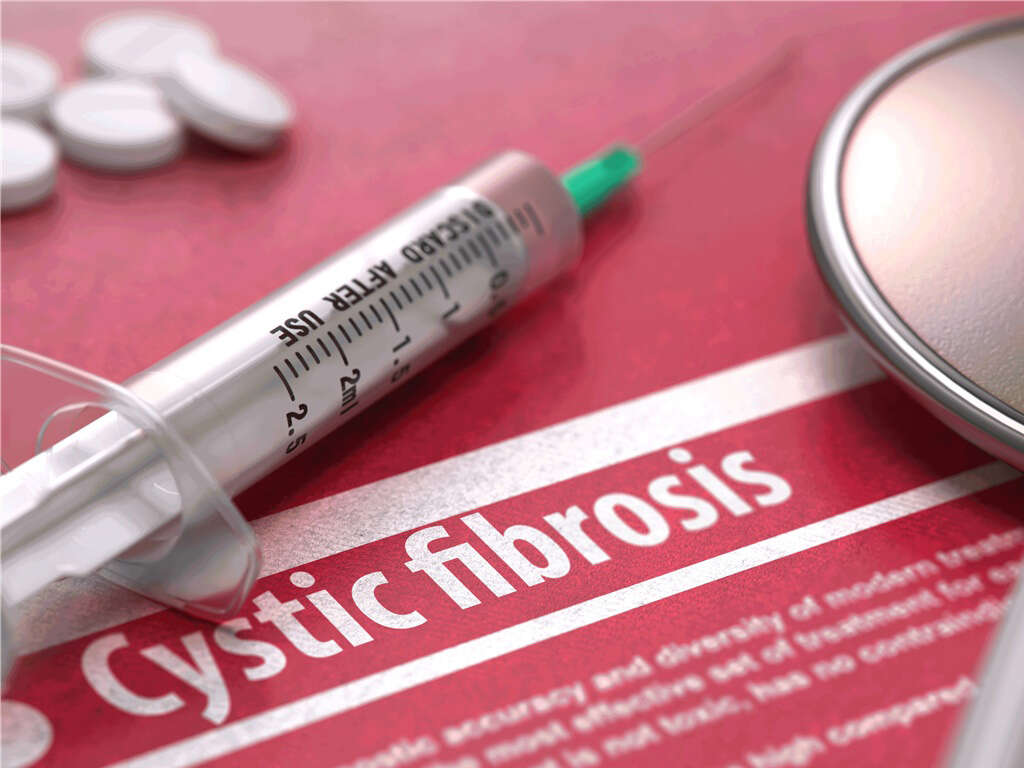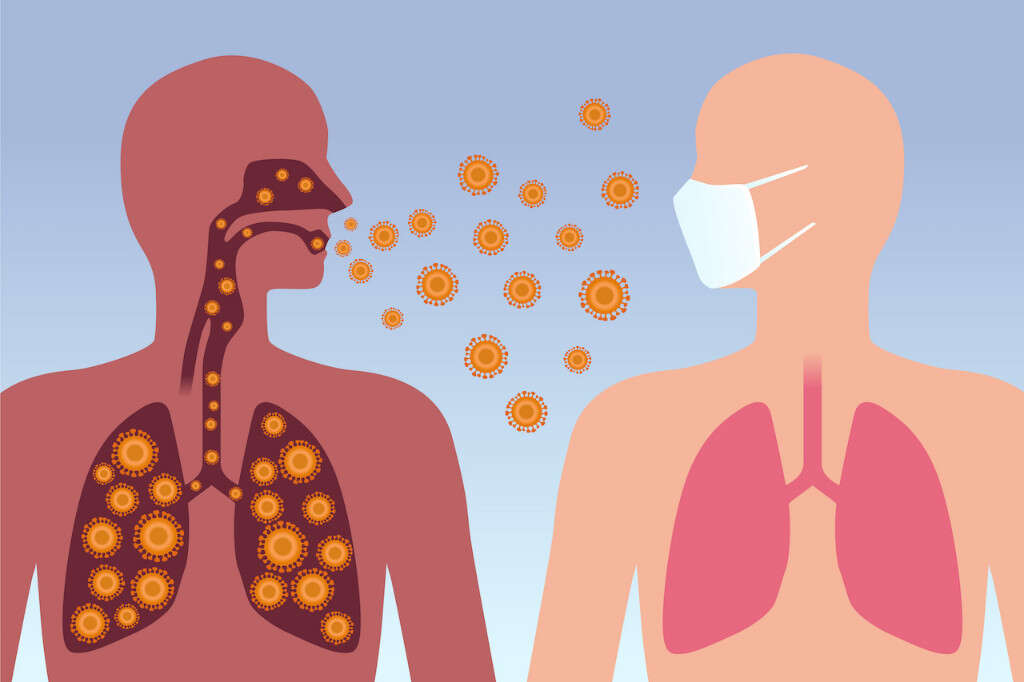10 Cystic Fibrosis Symptoms
Our bodies contain various different types of mucus. These are usually useful, even important, to us in a wide number of ways. They help to protect us from disease, protect us from damage, and also help provide lubrication when needed.
Mucus is produced in glands that are found all over the body. Cystic fibrosis is a genetic condition that causes mucus glands to secrete mucus that is thicker than usual. This can cause it to accumulate in the body and this can lead to a range of potentially serious complications.
There is, as yet, no known cure for cystic fibrosis but treatment is available that can at least help to ease symptoms.

Symptom #1: Cough
There are different types of cough. Some are dry and harsh, while others are more fluid. Some will also be persistent while others are more sporadic. The type of cough can tell us a lot about what is causing it. This could also help us know how to cure it if possible. Cystic fibrosis is no different and its characteristics can be very telling.
Patients with cystic fibrosis are likely to have a cough that is persistent. Perhaps more telling, though, is that the cough is also likely to produce a thick mucus, which we know as sputum. While a cough is not usually something to be concerned about, you should arrange to speak with a doctor if symptoms persist.

Symptom #2: Wheezing
Our airways need to be kept open at all times to allow air to flow in and out of the body freely. Any obstructions can make it difficult for the patient to breathe and this has the potential to be very dangerous. If the airways are narrower than usual for some reason, then this can result in a wheezing sound.
The sound of wheezing is caused by the air having to rush through a narrow passage, in much the same way that certain instruments make a sound. This can be very noticeable audibly and is a clear sign that the patient is struggling to breathe.

Symptom #3: Breathlessness
Our lungs are sucking in and exhaling air in a continuous cycle all day, every day. This cycle allows us to take in the oxygen that we need and then expel the spent air, emptying the lungs ready for another batch of fresh, oxygen-laden air. In order for this to work, the lungs need the airways to be open to allow the air to pass freely.
Patients with cystic fibrosis, however, will find that their airways are narrowed by their illness. This means that the lungs have difficulty getting enough air from which they can extract oxygen. This results in breathlessness and the patient will often breathe heavier to try and compensate.

Symptom #4: Regular Lung Infections
Infections will occur from time to time. Our immune systems are good, but they are not impenetrable. This will often happen if the skin is broken and exposed to pathogens. It can also happen if the patient has been run down and their immune system is weakened. The reasons are varied but, still, infections only happen occasionally.
Usually, pathogens that enter the lungs will be coughed up out and away from the body. Cystic fibrosis, however, causes a thick mucus to line the lungs. This mucus can trap bacteria and viruses, meaning infections are more likely. Pseudomonas aeruginosa is a pathogen that is a common cause of lung infections in people with cystic fibrosis.

Symptom #5: Difficulty Exercising
Exercise is good for us, and medical professionals are almost unanimous in saying that everybody should exercise as much as possible. It helps to strengthen the heart, muscles, and lungs and generally helps make sure the body is fit and strong. For people with certain illnesses, though, exercise can be very difficult.
When we exercise, our body needs more oxygen than usual. This means that the lungs and the heart work harder to make sure the additional oxygen is supplied. If the airways are narrower than usual, though, then it is harder for the body to get the extra oxygen. This makes it considerably harder for people with cystic fibrosis to exercise at all.

Symptom #6: Blocked Nose
Along with the mouth, our bodies take in the air that we need through our nose. Air is usually passed to and fro constantly through the nose and this can cause debris particles and pathogens to enter the system. Fortunately, we have a substance lining the nose that helps to catch these unwanted intruders. We tend to call it snot.
Once caught in snot, debris and pathogens are ejected by sneezing, keeping the passageway clear. Cystic fibrosis, however, causes this substance to become thicker than usual and this can lead to the nasal passage becoming blocked. This means that a blocked nose is a common symptom of cystic fibrosis.

Symptom #7: Weight Loss
Among other factors, the amount we eat has a direct impact on how much we weigh. The food we eat goes into our stomach, is digested, and the nutrition provided is used to help build and repair the body. Excess energy is stored as fat, which is one of the main causes of us becoming overweight.
People with cystic fibrosis, however, will find that they struggle to put on any weight no matter how much they eat. This is because the condition causes an excess buildup of mucus which blocks the pancreas. The pancreas is responsible for producing digestive enzymes and without these, the body will struggle to digest food.

Symptom #8: Meconium Ileus
Most parents will be familiar with meconium. It is the sticky, green substances that make up a newborn’s first stool and is made from everything the baby has ingested during its time in the womb. Once passed, the baby will then begin to produce normal stools.
Meconium Ileus is a condition that causes this already sticky substance to become sticker than usual. This means it is harder to pass and will block the anus, causing any waste the baby produces to be trapped inside. This will usually require surgery to fix and it is nearly always caused because the baby has cystic fibrosis.

Symptom #9: Constipation
Usually, food flows through the digestive system at a fairly regular rate. It passes fast enough to allow more food to enter the system but slow enough to allow the body to absorb nutrients from the food. If the food passes too quickly or too slowly, though, then this can cause problems for the patient.
With the digestive system becoming blocked with thick, sticky mucus, the food is going to travel through it more slowly. This results in more nutrients, and water, being absorbed from the food. While this might sound good initially, it isn’t so good when it results in hard, dry stools that are hard to pass.

Symptom #10: Smelly, Greasy Stools
Before modern medicine, medical practitioners would regularly check a patient’s stools to get an idea of their overall health. It was very effective and was able to tell the doctor a great deal about the patient. In fact, stools are often still requested in some cases to help reach a diagnosis.
People with cystic fibrosis will have a thick, sticky mucus throughout their digestive system, and this will be visibly noticeable in their stools. It will also lead to stools that are considerably more malodorous than usual. If you are producing stools that are abnormal in some way, you should seek advice from a medical expert.











